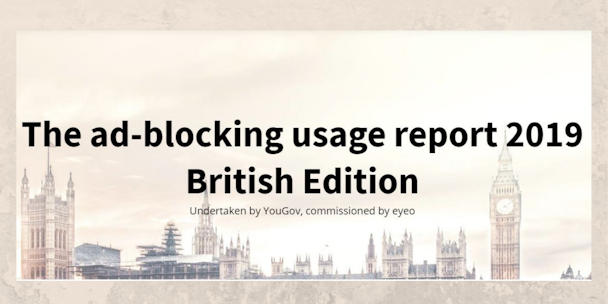80% of web users know ads fund publishers - more are filtering rather than blocking ads
A fresh appraisal of social attitudes toward advertising and adblocking has revealed a more nuanced relationship between publishers and audiences than the black and white picture often portrayed.

80% of Adblock Plus users know ads fund publishers - more are allowing responsible ads
Research conducted by Adblock Plus owner Eyeo found that far from seeking to banish ads entirely, 80% of Britons recognised the importance the industry plays in maintaining an internet that is free to use. It believes these findings shatter preconceptions that those who turn to adblockers have no regard for publishers’ revenues.
Asked why they’d installed ad-blocking software 71% of respondents cited a desire to avoid advertising while 49% cited security and privacy concerns.
Encouragingly for advertisers the research indicates that internet users would be willing to accept less invasive forms of advertising in return for being given greater control of both the quantity and quality of adverts they see.
In this way publishers who pursue responsible advertising could have an opportunity to reach previously excluded audiences, although the report authors warn publishers who engage in circumvention technologies risk further alienating users.
Ben Williams, director of advocacy at Eyeo said: “The idea that online users care little about the health of the internet is a tired notion we’re pleased to disprove. Our research clearly shows most online users understand the role advertising plays sustaining the internet, which is why we’re seeing a greater shift from total ad-blocking to ad-filtering.
“Online users are happy to receive adverts so long as they remain in control but become agitated when that control is wrestled from them.”
The findings were gleaned from the responses of 2,000 UK internet users, 878 of whom made use of ad blocking software.
Some publishers such as The Atlantic magazine have sought to circumvent ad blockers by implementing a so-called 'hard white wall'.

